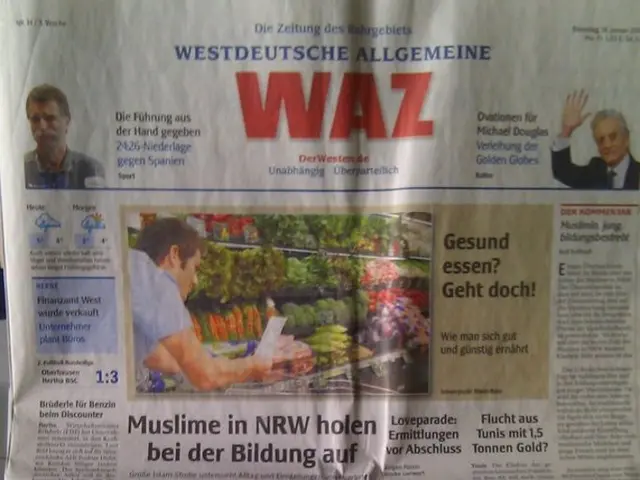US Takes Action amid Japan Tax Dispute over Trade Mistake
The recent escalation in the US-Japan tariffs dispute has highlighted the challenges that come with informal trade agreements. Prime Minister Shigeru Ishiba faced criticism for not securing a written commitment from President Trump during the July negotiations, as the Japan-US trade deal was not formalized in writing.
The informality in the agreement has allowed for potential errors in tariff implementation. A mistake in the implementation of Trump's reciprocal tariff order could have led to the tariff of Japanese beef jumping from 26.4% to 41.4%, and textile rates tripling from 7.5% to 22.5%. This error in the executive order allowed Japan's agreed 15% tariff rate to be stacked on top of existing tariffs, potentially pushing effective tariffs above the levels negotiated in July.
The omission of Japan in the "no-stacking" provision effectively violated the spirit of the deal, causing the Japan tariff rate to exceed 15%. Japanese goods faced higher duties than intended, and the US has acknowledged the stacking error and promised to rectify it, including amending the order to include Japan in the "no-stacking" provision that had been written for the EU.
Despite these errors, investors saw the correction as a sign that the trade deal was still intact. The US has committed to making things right, but no timeline has been set for the new orders or refunds. The fix involves issuing refunds for the excess tariffs already collected and lowering the auto tariffs through a separate executive order.
The tariff dispute has put the US-Japan relationship under a stress test. The US-Japan relationship has undergone a stress test due to this tariff dispute, with diplomatic momentum potentially being derailed by uneven execution in already tense foreign policies. The US-Japan relationship, however, has remained resilient, with Japan's chief negotiator, Ryosei Akazawa, flying back to Washington for urgent talks, making his tenth visit since April.
The tariff dispute highlights the fragility of large-scale trade deals based on political handshakes rather than formal legal frameworks. The informality of the US-Japan trade agreement typically means the agreement or cooperation lacks rigid binding legal structures and detailed treaty enforcement mechanisms, relying instead on mutual understanding, flexible arrangements, and iterative collaboration.
This informality can both facilitate and complicate the execution of trade policy. Greater flexibility and adaptability are offered, allowing both countries to adjust quickly to changing economic conditions and political priorities without lengthy renegotiation or bureaucratic delay. However, non-binding commitments and legal ambiguity can complicate the consistent application of tariff rules and procedures, potentially leading to misunderstandings or errors during implementation.
The execution of trade policy under informal agreements depends heavily on continuous communication and mutual trust, which if disrupted, might destabilize tariff implementation or trade flows. The US-Japan tariff dispute serves as a reminder of the potential risks associated with informal agreements, particularly in the area of tariff implementation.
Sources:
- Informal International Economic and Security Arrangements: A Comparative Analysis
- The Political Economy of Informal International Agreements
- The Political Economy of Informal International Agreements: Evidence from the G7
- The tariff dispute between the US and Japan highlights the potential risks associated with informal trade agreements in the realm of finance, politics, and general-news, as the agreement's lack of a formal legal framework led to errors in tariff implementation.
- The Japan-US trade agreement's reliance on mutual trust and flexible arrangements in the absence of a detailed treaty enforcement mechanism, as observed in the informal agreement, can potentially complicate the consistent application of tariff rules and procedures in the industry sector, leading to misunderstandings or errors during implementation.




